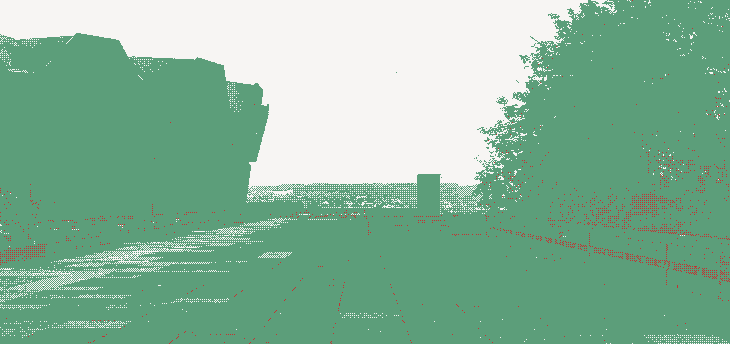
Ute Eickelkamp 📧 (University of Technology Sydney)
Axel Schuch (Campus Emscherland e.V.)
While many projects of the Ruhr’s industrial heritage and nature restoration movements present notable achievements, the gradual exit from coal mining has not been a smooth transition to a green industry hub. Visitors to the Ruhr, local artists, filmmakers and other astute observers have noted the brokenness of the built and more-than-human environment --- the architectural discontinuities, aesthetic slippages, infrastructural chaos, unfinished projects, and opportunistic usage of interstitial spaces. Most of all, the inner landscape of the Ruhr region built on solidarity, that is, the social infrastructure, is experienced as broken, worn out, cracked like aged mortar. Acknowledging the creative energy of engaged citizens in the remaking of former industrial sites, we nonetheless note three wicked problems that deindustrialisation has brought in its wake and which the creative remaking of ruins seems unable to redress: a growing socioeconomic precarity, cultural tensions, and the hyper-individualisation of the self. These have become structural features of former coal mining suburbs in cities along the Emscher river. Working within this moment of societal ruination, we seek to sensitize our perception to the potential for alternative ways of being in place, of co-existing with human and more-than-human others, with difference, with incompleteness, with transitory presence, and within a range of temporal frames that can engender multiple possible futures.
Can the work of slow, poetic place-making galvanize experiences of social connectedness and an enlivening cultural pluralism before an uncertain future? What kind of conceptual work is needed to reimagine what could be? We bring these questions to the former mining suburb of Recklinghausen Süd, focussing on the central business area located along a major traffic artery between secondary schools and the plaza where the closure of a supermarket and indoor/outdoor café has caused much social grief.
Thinking-with this now desolate place (or non-place), we invite scholars, artists, makers, and frontline workers interested and/or experienced in experimental place-making across cultures to a one-day lab of social dreaming in Recklinghausen Süd. Our longer-term aim is to develop counter-tactics of creative co-labour that deflate ingrained politics of resentment. Through a sensory walk in the neighbourhood (please bring your Handy to document your impressions) and a pop-up story place in situ, followed by a brainstorming and experience-sharing session at the nearby art centre, the lab experiments with concepts and languages for social-ecological wellbeing that can reach people exhausted by their life circumstances. We aim to co-produce with participants a statement on the place of poetics (in the sense of perceptive creativity in the face of adversity) in urban development that could be shared with relevant authorities and the agency overseeing the roll-out of an integrated urban development concept.
All team members have longstanding connections to the city and are widely networked across local social welfare, cultural and business organisations. We will pre-circulate basic demographic, historical, and socioeconomic information about Süd and the arts association active here, and share key conceptual readings (short) and an ethnographic vignette.
Local collaborator
Arts Association Campus Emscherland e.V., German-Turkish social workers and educators.
Fieldtrip
Whole day in Recklinghausen Süd, following a three-phase structure:
- Meet-up & Introductions at the art studio
- Walk and Pop-up Gathering on Site
- Discussion and Drafting of Statement at the studio.
Self-organised travel to and from the art studio, short bus travel and walk-talk along the focus area; no wheel-chair access at the studio.